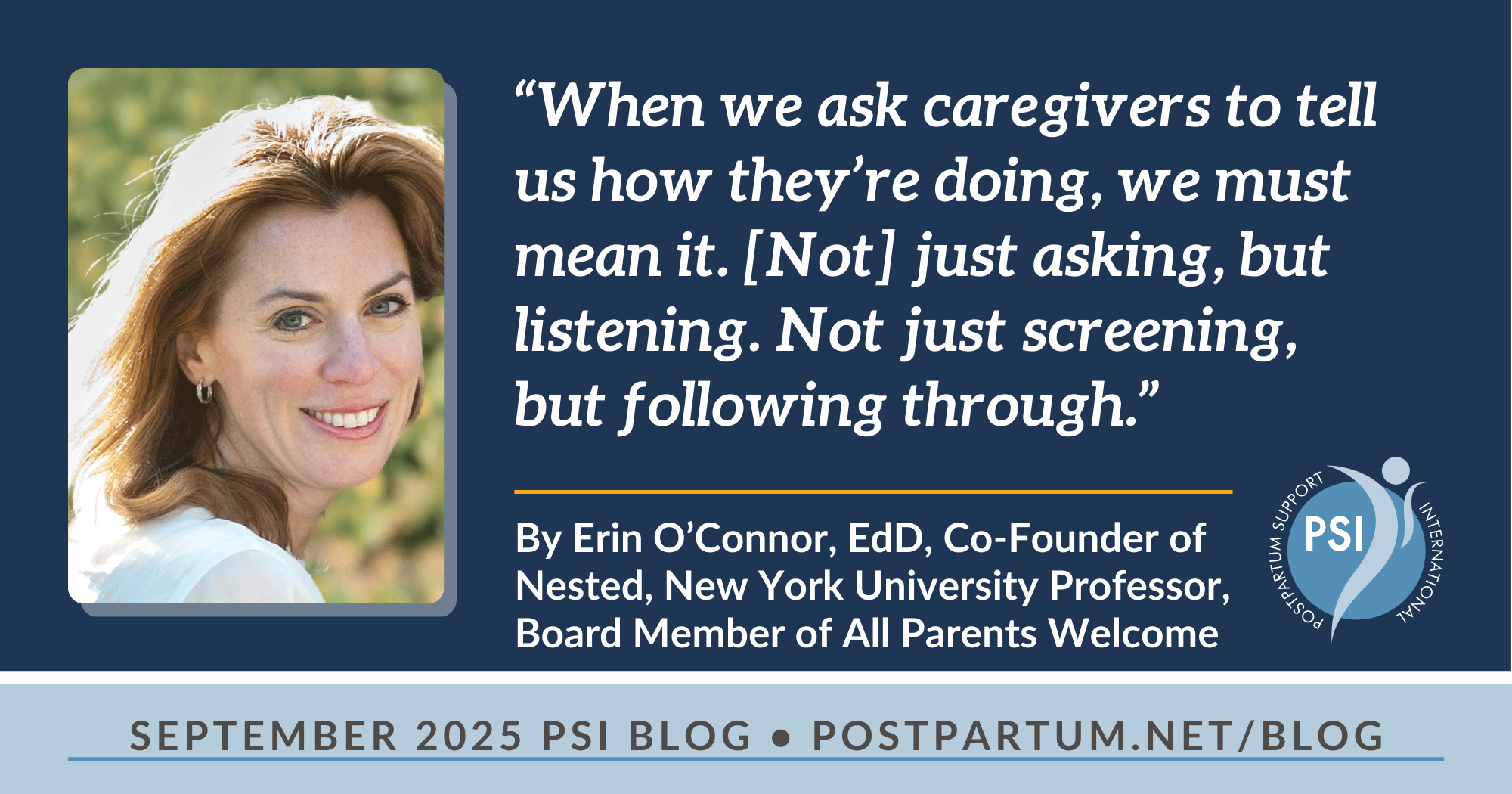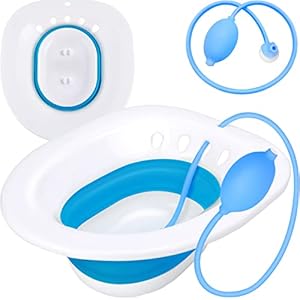
By Erin O’Connor, EdD, Co-Founding father of Nested, New York College Professor, Board Member of All Mother and father Welcome
Many dad and mom concern that disclosing postpartum struggles might value them their child. It’s time to repair the programs that make silence really feel safer than assist.
When Talking Up Feels Too Harmful
Think about recognizing you’re not okay after having a child. You’re overwhelmed, anxious, possibly even afraid of what you would possibly do or really feel. You understand you need assistance, however as a substitute of claiming so, you smile politely, fill out the perinatal temper and anxiousness dysfunction (PMAD) screening with secure solutions, and push by alone. Why?
As a result of for a lot of new dad and mom, honesty feels too dangerous.
In our new national study of over 1,000 caregivers performed by Nested in partnership with New York College, solely 36% of respondents who have been screened for perinatal temper and anxiousness problems (PMADs) reported answering actually. The remainder held again out of concern that admitting to intrusive ideas, rage, or despair would possibly model them unfit and value them custody of their baby.
This silent, invisible rigidity haunts the perinatal psychological well being panorama. And it’s costing households the care they desperately want.
The Worry of Dropping It All
Caregivers who participated in our examine spoke about this concern overtly and powerfully. Their phrases inform the story higher than statistics ever might:
“Worry that my baby could be taken away from me if I have been trustworthy about how loopy I felt.”
“Worry of getting my child taken away as a consequence of my perceived incompetence or ‘psychological instability.’”
“I feared I’d be judged. I feared I’d be put right into a hospital towards my will or have my child taken from me.”
These aren’t remoted reactions. They mirror a systemic concern that any admission of postpartum misery, irrespective of how treatable, will probably be interpreted as an indication of hazard.
One participant shared:
“Nobody ever ready me for this. I felt so alone and scared for me and my child, but in addition scared to hunt assist out of concern of my child being taken away.”
This concern doesn’t simply delay remedy. It actively pushes caregivers additional into isolation and disgrace.
The Drawback with How We Display
A lot of this concern stems from how PMAD screenings are at present performed. Typically lowered to a checkbox type (the Edinburgh Postnatal Despair Scale, for instance), screenings can really feel extra like a authorized legal responsibility type than a significant alternative to supply care.
“The Edinburgh take a look at feels extremely shallow… I’d memorized which questions, and what rating I wanted to attain to not elevate eyebrows. It additionally lacks nuance, and by no means as soon as did a health care provider dive deeper into any of the solutions. At greatest a nurse practitioner would look on the sheet and sweep it up into her clipboard.”
“I used to be so anxious I used to be afraid if I used to be trustworthy, they’d assume I wasn’t a great mother, so I simply checked all 4s with one or two 3s so it didn’t appear pretend.”
Caregivers internalize the message: Don’t elevate crimson flags. Simply survive the appointment.
If the system indicators that truth-telling would possibly result in surveillance or separation, it ought to come as no shock that caregivers disguise the reality.
Why Suppliers Typically Really feel Unprepared
Healthcare suppliers are essential allies in figuring out and supporting caregivers with PMADs, however many aren’t geared up to take action.
In a 2020 examine by Barkin et al., each pediatricians and OB/GYNs reported important boundaries in addressing perinatal psychological well being. Pediatricians typically don’t think about the mom “their” affected person and lack entry to her medical data. OB/GYNs report inadequate coaching in PMAD remedy, particularly round remedy.
“The one drug I’m comfy prescribing is Zoloft,” one OB/GYN admitted. “I wasn’t skilled for this.”
“Would you ask a psychiatrist to ship a child?” requested one other.
And even when a caregiver screens constructive, suppliers don’t all the time know what to do subsequent:
“If my affected person screens constructive, what do I do with them?”
When care groups aren’t skilled or supported, the screening turns into a lifeless finish as a substitute of a bridge to care.
The place We Go from Right here
To create a system the place caregivers may be trustworthy and get assist, we want a full reset on how we method perinatal psychological well being. Right here’s what that appears like:
1. Screening with Security and Transparency
Caregivers have to know their rights. Screening instruments ought to embody plain-language disclosures about confidentiality, mandated reporting, and accessible assist choices. Readability reduces concern.
2. Trauma-Knowledgeable Supplier Coaching
Medical professionals ought to be skilled to acknowledge PMADs with out leaping to disaster response. Trauma-informed approaches construct belief and cut back the chance of retraumatization.
3. Investing in Medical Capability
We have to fund extra perinatal psychological well being specialists and combine psychological well being care into OB and pediatric settings. Because the American School of Obstetricians and Gynecologists recommends, the “fourth trimester” deserves centered assist.
We Can not Afford to Make Mother and father Select Between Assist and Custody
Once we ask caregivers to inform us how they’re doing, we should imply it.
Meaning not simply asking, however listening. Not simply screening, however following by. And never punishing dad and mom for being human.
Caregivers shouldn’t have to decide on between telling the reality and defending their baby. They deserve care that honors their vulnerability.
Reference:
Barkin, J. L., Osborne, L. M., Buoli, M., Bridges, C. C., Callands, T. A., & Ezeamama, A. E. (2020). Coaching frontline suppliers within the detection and administration of perinatal temper and anxiousness problems. Journal of Ladies’s Well being, 29(7), 889.
Discover Extra PSI Assets:
Connect with Knowledgeable Providers Using the PSI Directory
Professional Perinatal Mental Health Training
Perinatal Mental Health Signs, Symptoms & Treatment
Trending Merchandise






